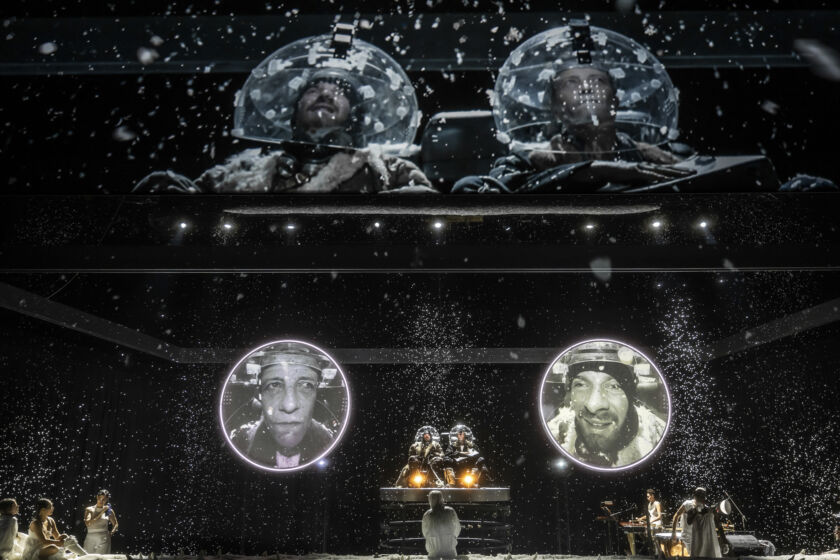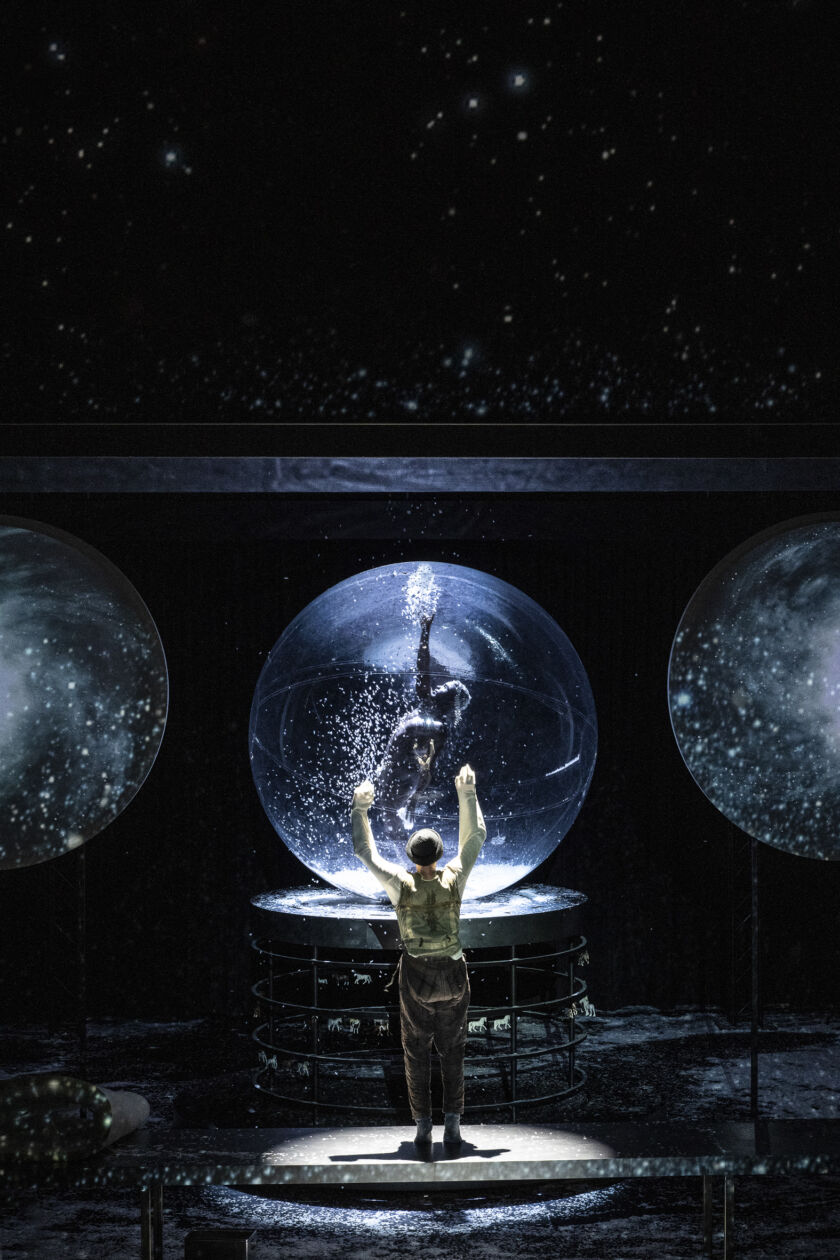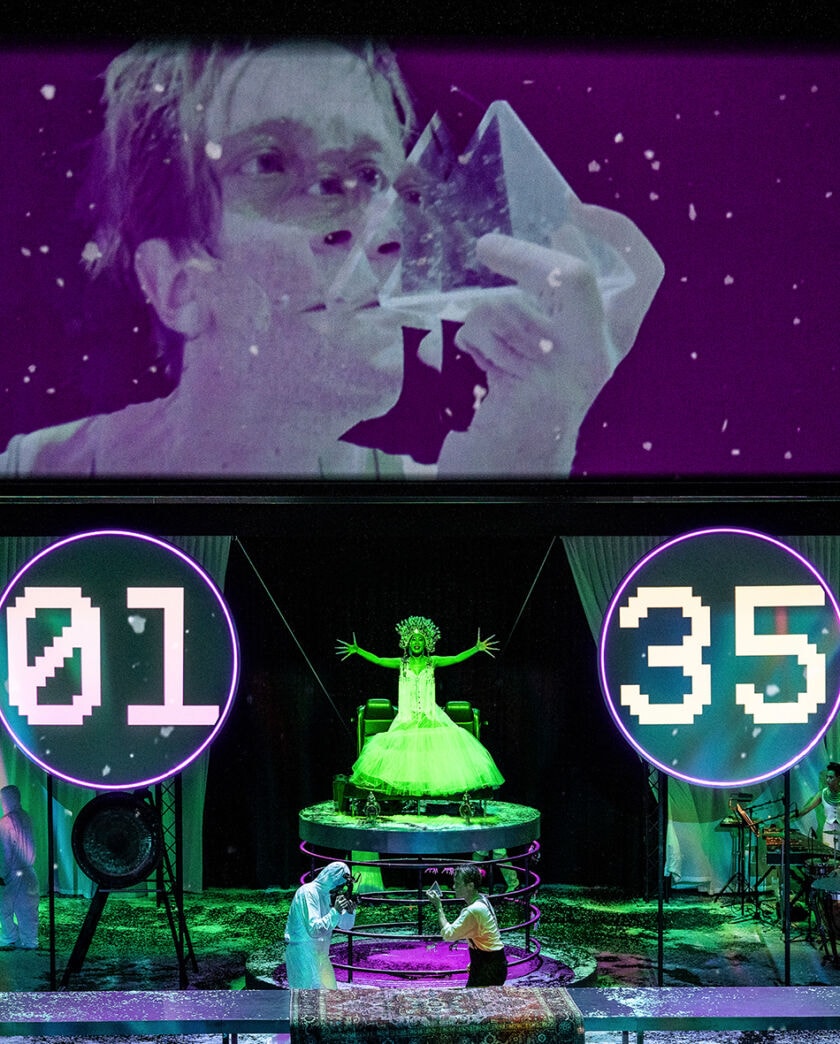Vladimir Sorokin: “Culture is not a house cat“
The dramatization of Vladimir Sorokin’s novel The Blizzard marks director Kirill Serebrennikov’s Salzburg debut this year: a wild carriage ride into the “hopeless Russian winter” (under Putin).


Asked about the things he misses about Russia in an interview with Die Presse, the author Vladimir Sorokin recently named one thing above all: snow. For several years, the former “enfant terrible” of Russian literature and his wife have had a second home in Berlin’s Charlottenburg neighbourhood; since the beginning of the Ukraine war, he has lived in Germany fulltime. When does he plan to return to his homeland? “When the war ends.” Sorokin seems to have little use for Moscow, calling the city “presumptuous” and a “state within the state”. He loves the surroundings with their forests and dachas all the more, such as the place where he was born and built a house in the 1990s.
Nature usually plays a wild role in the works of the 69-year-old writer, who seems to have an affinity for wildness in general. Amidst the chaos of the post-Soviet Nineties, he became a central protagonist of Russian postmodernism and one of the authors most well-known internationally. In his homeland, however, he has been persecuted and tried for alleged pornography. Once, for example, a youth organization publicly flushed his books down a “toilet” set up outside the Bolshoi Theatre.
Not only vulgar and obscene elements, but also grotesque ones are ubiquitous in his works, taken to ever more extremes – including comic extremes. Culturally and politically, Sorokin’s books are intensely inspired by his homeland – and, though one might hardly expect it from this iconoclast, also by the classics of Russian literature, which he reveres even while destroying them: “Russian literature is a church,” he once said. “I enter it with an axe.”

Artistic adrenaline. In Russia, even the future can feel like the past. Thus, in Vladimir Sorokin’s work, archaic elements are mixed with science fiction, resulting in retro-futuristic fantasy worlds. They are full of violence and a mysticism that appears completely deranged: the writer once called the tendency towards both the sacred and destruction the central elements of Russian mentality. To him, Russia is a place of nightmares, where terrible things happen with great regularity, but which also generates artistic “adrenaline”. Nightmares are also dreams – and dreams are inspiring.
Sorokin’s novel The Blizzard is another wild ride, to be presented in August in a stage version at the Salzburg Festival. More particularly, it’s a wild carriage ride, full of allusions to authors such as Pushkin, Leskov and Chekhov. Doctor Garin, a country physician, and his coachman Kosma are travelling to a village where a mysterious epidemic has broken out. It turns people into zombies; Garin is trying to bring the villagers the saving vaccine. The carriage is drawn by 50 miniature horses, no larger than guinea pigs – these are presumably the most touching inhabitants of this novel’s world. The travellers also encounter giants and dwarves, and there are several (retro)futuristic elements, such as a paste that makes dreams come true. A blizzard begins, the journey becomes an odyssey of apocalyptic dimensions. In the end, Chinese people turn up out of nowhere, grabbing everything they can lay hands on.
With the dramatization of this novel, the Russian director Kirill Serebrennikov makes his Salzburg debut this year (he too has been living in Germany since the war against Ukraine started). Serebrennikov considers the total disorientation that seizes the protagonists through the natural force of the blizzard a “metaphor for all human beings”. Of course, the author Vladimir Sorokin also plays with such metaphorical possibilities, but he made them refer clearly to Russia: when he wrote the novel in 2009, he intended to write a novel about the “hopeless Russian winter”, he says – with the political situation under Putin in mind.
At the same time, his raging blizzard is just a raging blizzard. As such, it is part of Russian reality; Sorokin’s grandfather, for example, survived one by good fortune alone. Sorokin has turned this force of nature into one of the main protagonists of his novel. Visually, things may become extremely impressive when Russian winter arrives at the Perner-Insel in Hallein – in the midst of a scorching August.
In general, The Blizzard contains far fewer direct political references than other works by the same author; far fewer, for example, than Sorokin’s subsequent novel Doctor Garin, published in German in 2024. In it, the doctor (obviously, he has survived the blizzard) is the director of a psychiatric clinic in the Altai Mountains. Prominent current and former heads of state are treated there for their complex neuroses, from Vladimir and Donald to Angela, Emmanuel and Silvio to Boris and Justin. One thing they all have in common is a strange physique: apart from their arms, they only have a bottom, with which they do everything: eating, thinking, talking etc. Once again, Doctor Garin is trying to prevent the zombification of the world, but due to an atomic bomb, he and his patients have to escape on huge bio-robots. The Blizzard and Doctor Garin form a trilogy together with Sorokin’s latest novel, entitled nasledye (Legacy) in Russian. The latter has not been translated yet; in Russia, after its publication in 2024 it was banned, for all intents and purposes, by a “recommendation” issued by the authorities.
Has Vladimir Sorokin found it more difficult to write since the war started? No, he tells Die Presse: He keeps working, as he did, using “my own optical instrument, which has one foot in the past and the other in the future, thereby creating a hologram: the present”. This author will not be tamed, neither in content nor style – fortunately. This, after all, is another lesson we learn from Sorokin: “Culture is not a house cat.”
Text: Anne-Catherine Simon
Translation: Alexa Nieschlag
Zuerst erschienen am 31.05.2025 in Die Presse Kultur Spezial: Salzburger Festspiele
